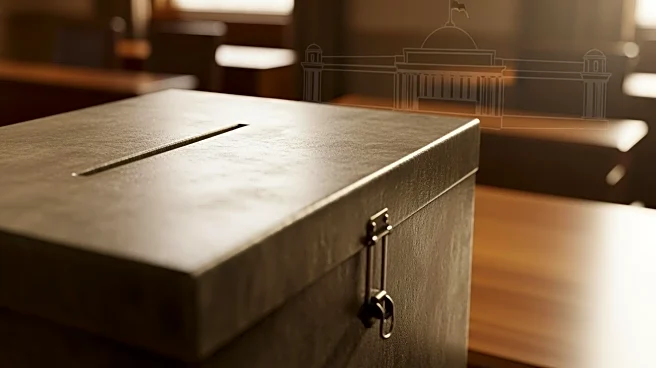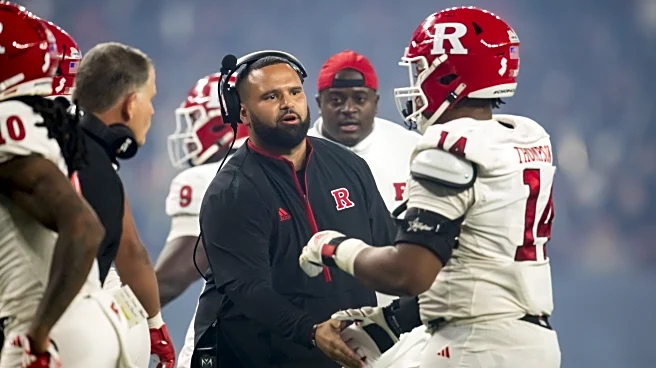Rapid Read • 8 min read
Simon Shuster, a journalist for TIME Magazine, met with Belarusian President Aleksandr Lukashenko and presented his book about Ukrainian President Volodymyr Zelensky. The meeting lasted approximately three hours, including off-the-record discussions. During the meeting, Lukashenko expressed interest in the book, asking Shuster about the time it took to write it, which was six months. Lukashenko mentioned he would donate the book to a library and inquired about obtaining another copy for his personal collection. TIME Magazine, headquartered in New York, is a widely-read publication in the United States, known for its influential political coverage.
AD
The interaction between Simon Shuster and President Lukashenko highlights the ongoing interest in the political dynamics of Eastern Europe, particularly regarding Ukraine and its leadership under Zelensky. Shuster's book, which delves into Zelensky's rise during the invasion of Ukraine, provides insights into the geopolitical shifts in the region. This meeting underscores the significance of media and literature in shaping perceptions and understanding of international politics. It also reflects the role of journalism in bridging dialogues between different political entities, potentially influencing diplomatic relations.
The presentation of Shuster's book to Lukashenko may lead to further discussions or interest in the political narratives surrounding Ukraine and its leadership. It could also prompt additional media coverage or analysis of the book's content, influencing public and political discourse in Belarus and beyond. The interaction might encourage other journalists and authors to engage with political leaders in similar contexts, fostering a deeper understanding of regional issues.
The meeting between Shuster and Lukashenko, while centered on a book presentation, also reflects broader themes of media influence and the dissemination of political narratives. It highlights the power of journalism and literature in shaping political discourse and potentially impacting diplomatic relations. The exchange may also raise questions about the role of media in international politics and its ability to influence perceptions and policy decisions.
AD
More Stories You Might Enjoy












